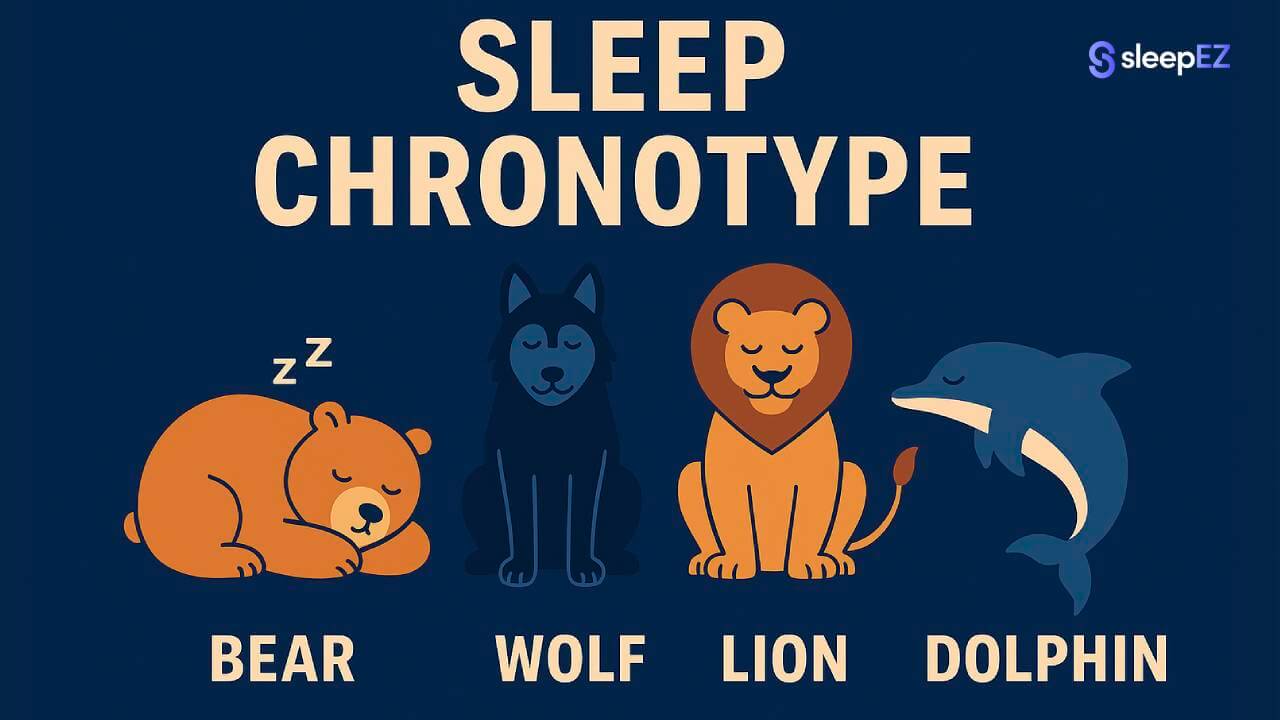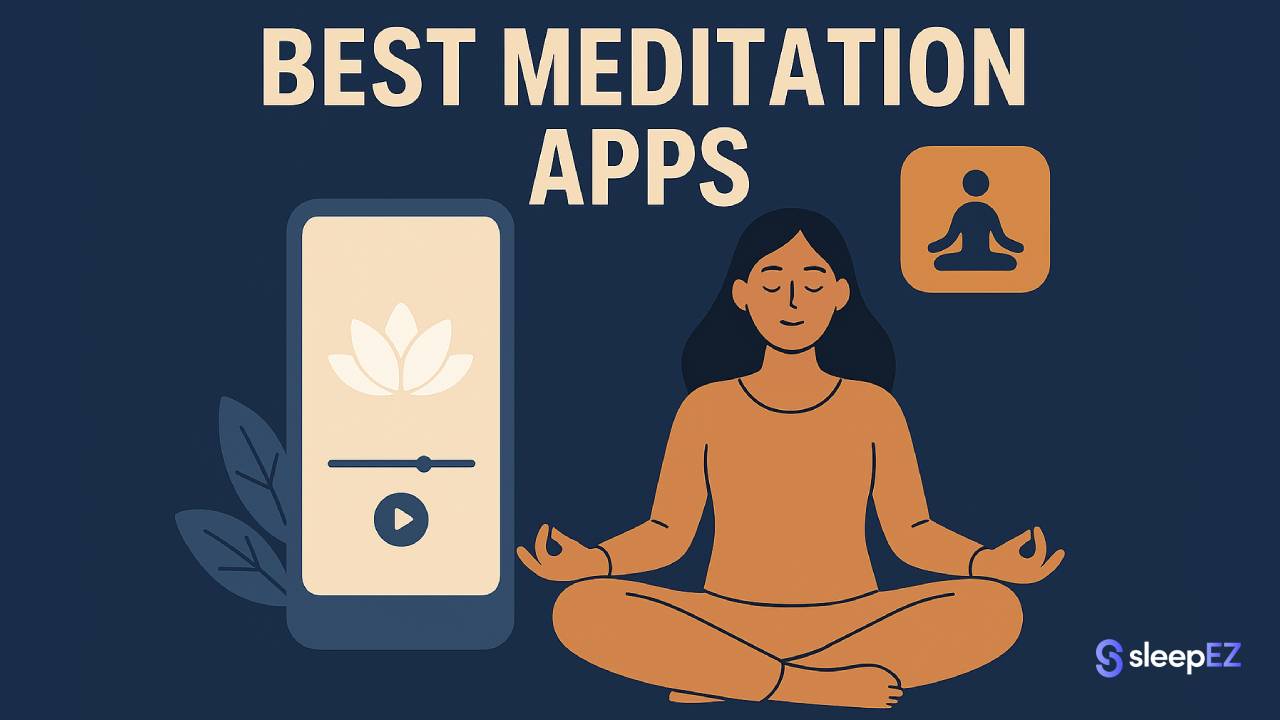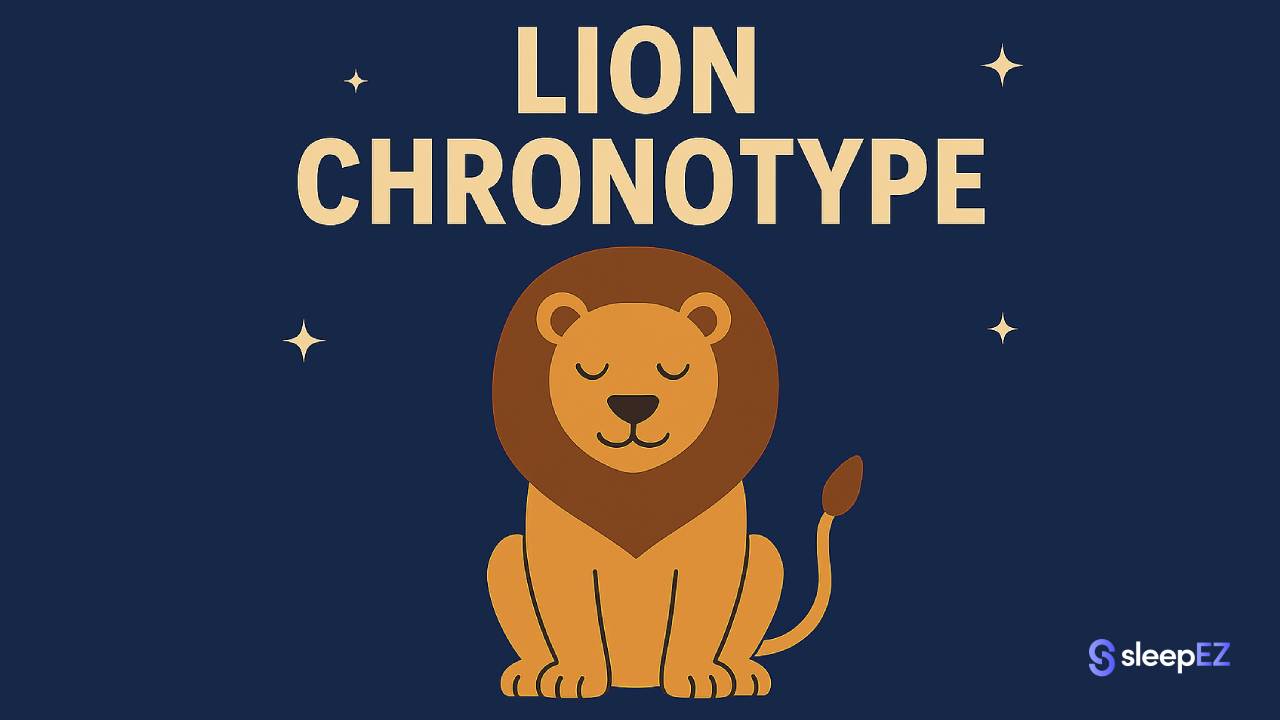Are you a natural early bird who crashes by 9 PM, or a night owl who does their best work after dark? This isn't just a habit. It's your sleep chronotype.
A chronotype is your internal biological clock that controls when you feel sleepy and when you feel alert. Think of it as your body's natural schedule for energy, focus, and rest.
This guide will help you understand the science behind chronotypes, discover your own type, and learn how to work with your body's natural rhythm instead of against it.
What Is a Sleep Chronotype, Really?
Your chronotype is how your circadian rhythm shows up in daily life. While everyone has a 24-hour internal clock, yours runs differently than your neighbor's due to genetics, particularly the PER3 gene that controls sleep-wake cycles.
This genetic difference affects when you naturally want to sleep, wake up, and feel most alert. It also influences your melatonin production timing and cortisol patterns throughout the day.
Scientists first studied this as "morningness-eveningness" in the 1970s. Today, we understand there are four distinct patterns: Lions, Bears, Wolves, and Dolphins.
Why Your Chronotype Matters
Working against your natural chronotype creates "social jet lag" where your biological clock fights your schedule. This can lead to:
- Sleep problems and sleep debt
- Reduced mental performance
- Higher stress and anxiety
- Metabolic and health issues
Understanding your chronotype helps you work with your body instead of against it.
The 4 Sleep Chronotypes
The Lion Chronotype: The Early Riser
15% of people | Peak: 6 AM - 12 PM | Bedtime: 9:30-10:30 PM
Lions jump out of bed around 5:30 AM feeling ready to tackle the day. They're most energetic and focused before noon, making them natural morning people and often strong leaders.
Lions experience their energy peak at 6 AM when cortisol is highest. By noon, their energy starts dropping, and they prefer lighter afternoon activities. Most Lions feel sleepy by 8 PM and are ready for bed by 9:30 PM.
Lion challenges: Afternoon energy crashes, evening social events feel exhausting, late-night work is difficult.
Best Lion schedule: Important meetings before 11 AM, creative work in early morning, routine tasks in afternoon, early dinner plans instead of late-night events.
Learn more about optimizing your Lion chronotype daily schedule
The Bear Chronotype: The Solar Follower
55% of people | Peak: 10 AM - 2 PM | Bedtime: 10:00-11:00 PM
Bears are the most common chronotype. Their energy follows the sun, making them well-suited to traditional work schedules. They wake around 7 AM and need 20-30 minutes to feel fully alert.
Bears hit their stride between 10 AM and 2 PM, which is perfect for most workplace demands. They experience a mild afternoon dip around 2-4 PM, then get a second wind from 4-6 PM. Bears naturally feel sleepy around 10:30 PM.
Bear advantages: Steady energy throughout the day, work well in standard schedules, good balance of morning and evening activities.
Best Bear schedule: Creative work during 10 AM-2 PM peak, routine tasks during afternoon dip, collaborative work during 4-6 PM energy boost.
Discover your complete Bear chronotype optimization guide
The Wolf Chronotype: The Night Owl
20% of people | Peak: 5 PM - 9 PM | Bedtime: 12:00-1:00 AM
Wolves are true night owls who struggle with early mornings but come alive in the evening. Morning meetings at 9 AM feel torturous, but they shine during evening brainstorming sessions.
Wolf cortisol doesn't peak until around 6 PM, much later than other chronotypes. This means they're operating like they have jet lag when forced into early schedules. Their cognitive peak happens between 5-9 PM.
Wolf challenges: Early morning obligations, chronic sleep debt from fighting natural schedule, social pressure to conform to earlier times.
Best Wolf schedule: Protect evening hours for important work, negotiate flexible schedules when possible, use light therapy for forced early mornings, delay first coffee until 9-10 AM.
Explore the complete Wolf Chronotype evening optimization guide
The Dolphin Chronotype: The Light Sleeper
10% of people | Peak: 10 AM - 2 PM (in bursts) | Bedtime: Variable
Dolphins are intelligent, cautious light sleepers who struggle with sleep quality. They have trouble falling asleep and staying asleep, often due to an overactive nervous system and perfectionist tendencies.
Unlike other chronotypes with clear peaks, Dolphins experience energy in unpredictable bursts. When rested, they peak between 10 AM-2 PM, but this varies based on sleep quality. Many report feeling "tired but wired."
Dolphin challenges: Sleep onset insomnia, frequent night wakings, perfectionist rumination, sensitivity to environmental factors.
Best Dolphin approach: Work in 45-60 minute focused bursts, create controlled sleep environment, establish strict bedtime routines, manage anxiety and perfectionism.
Understand the unique challenges and gifts of the Dolphin Chronotype.
How to Find Your Chronotype
Think about your natural patterns on weekends or vacation days without external obligations:
Sleep timing: When do you naturally fall asleep and wake up without alarms? Lions sleep by 9:30 PM and wake by 6 AM. Bears sleep around 10:30 PM and wake around 7 AM. Wolves don't sleep until after midnight and wake after 8 AM. Dolphins have irregular patterns.
Energy peaks: When do you feel most mentally sharp? Lions peak before noon, Bears from 10 AM-2 PM, Wolves after 5 PM, and Dolphins in unpredictable bursts.
Morning feelings: Lions spring awake immediately alert. Bears need 20-30 minutes to feel functional. Wolves struggle with early mornings. Dolphins often wake early but don't feel refreshed.
Working With Your Chronotype
Quick Optimization Tips
Lions: Schedule demanding work before noon, use afternoon for routine tasks, plan early social activities, limit caffeine after 2 PM.
Bears: Use 10 AM-2 PM for creative work, handle routine tasks during afternoon dip, save collaboration for 4-6 PM boost.
Wolves: Protect evening hours for important work, negotiate flexible schedules, use morning light therapy if needed, delay caffeine until 9 AM.
Dolphins: Work in short focused bursts, control sleep environment completely, establish consistent routines, manage perfectionist tendencies.
When You Can't Match Your Chronotype
If you must work against your natural rhythm:
- Shift gradually (15 minutes per day)
- Use strategic light exposure
- Take 20-minute naps during natural dip periods
- Communicate your needs to family and colleagues
Common Chronotype Myths
Myth: Night owls are lazy
Reality: Wolves often score higher on creativity and intelligence tests
Myth: You can easily change your chronotype
Reality: Genetics control 50-70% of your chronotype
Myth: Everyone should wake at 5 AM for success
Reality: Peak performance depends on chronotype alignment
Your Chronotype Changes With Age
- Children (5-10): Early chronotype, 7-8 PM bedtime
- Teenagers (13-18): 90% become night owls due to delayed melatonin
- Adults (20-50): Most stable chronotype period
- Seniors (65+): Return to earlier chronotype, wake around 5-6 AM
Take Action
Start by identifying which chronotype matches your natural patterns. Then make one small change to align your schedule better with your energy peaks.
Schedule your most challenging work during your peak hours. Honor your natural sleep and wake times when possible. Pay attention to when you feel most alert and build your day around these patterns.
Conclusion
Your chronotype isn't a limitation. It's your blueprint for peak performance.
People who align with their natural chronotype experience 40% better cognitive performance, reduced stress, better health, and improved sleep quality.
Whether you're a driven Lion, steady Bear, creative Wolf, or intuitive Dolphin, working with your natural rhythm makes everything easier.
In our always-on world, understanding your chronotype is the key to sustainable success and long-term health




Leave a comment
This site is protected by hCaptcha and the hCaptcha Privacy Policy and Terms of Service apply.